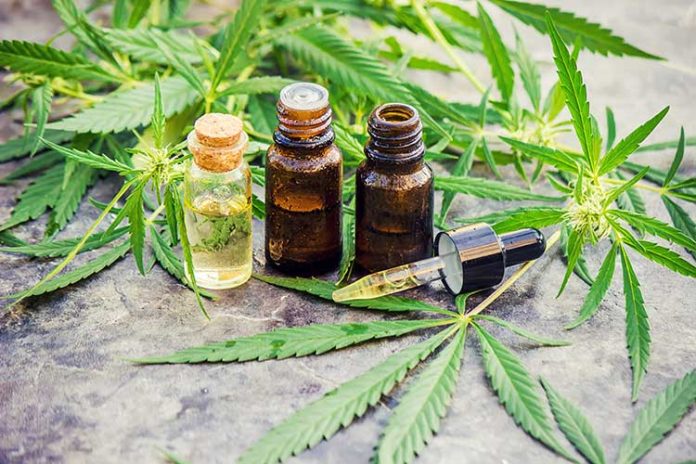Proponents of medical marijuana in Texas cheered what they viewed as a small but significant step forward in February, when the first legal sales of products containing a non-psychoactive extract of the plant began under the state’s highly restrictive medical cannabis law.
But they’re recoiling two months later, as a state health agency considers a proposal that could strip from Texas store shelves all other foods and food supplements advertising marijuana extracts as ingredients.
The plan would put cannabidiol, known as CBD, out of reach for most Texans, because the state’s medical cannabis law — called the Compassionate Use Act — allows only licensed Texas dispensaries to sell the extract and only patients suffering from a single, rare ailment to buy it.
“That is going to be a really awful day for a lot of people” if the state goes through with the proposal, said Becky Tyson, who along with her husband owns White Dragon Botanicals on Burnet Road and sells a variety of products infused with CBD oil.
“It will effect a lot of people tremendously,” Tyson said. “A lot of people have turned to these natural alternatives, rather than just using pharmaceuticals, and they’ve found great relief.”
CBD — which doesn’t produce a high — has been gaining in popularity nationwide as a treatment for all manner of ailments, including chronic pain, anxiety, seizures and sleep disorders. But it remains illegal under federal law, as does tetrahydrocannabinol, or THC, which is the component of the marijuana plant that is psychoactive.
Under the plan that the Texas Department of State Health Services is considering, any food or supplement advertising itself in the state as a source of CBD or THC and sold over-the-counter at retail would be subject to confiscation if the retailer declines to remove it voluntarily so it can be sent back to the manufacturer or destroyed.
Lara Anton, a spokeswoman for the agency, said it is simply trying to clarify and enforce existing rules because inspectors have been encountering a proliferation of CBD products made out of state that are being shipped into Texas for sale, and they’re perplexed as to how to handle them.
Foods and supplements that merely promote “hemp oil” as an ingredient still could be sold in Texas under the plan, Anton said, because the state agency would assume the concentrations of CBD and THC they contain are at trace levels only. But anything specifically advertising CBD or THC on its label would have to be removed.
“If you have listed it as an ingredient on your label, than it’s clearly at an enhanced level,” she said.
The health services department isn’t planning to do any actual testing of products, Anton said, although there would be a procedure for companies to have independent lab analysis done to prove only trace concentrations if they want to keep selling in Texas.
She said there is no timetable for the agency to make a decision on the plan, although a public comment period on it ended Monday.
Sales of CBD products under the Texas Compassionate Use Act, which are allowed only to certain patients suffering from rare intractable epilepsy and under a doctor’s direction, won’t be affected by the proposal.
But Morris Denton, chief executive of Compassionate Cultivation — one of three medical cannabis dispensaries licensed under the restrictive law — said he considers the health agency’s potential crackdown on over-the-counter retail products “a step back” for Texans nonetheless if it isn’t coupled with a plan to make regulated CBD products available to more people.
“It’s troubling to me that a great percentage of Texans will no longer be able to achieve that benefit” derived from CBD, said Denton, whose dispensary is in Manchaca. “If you are just taking a product away from people that has helped them, but not giving them a legal solution, then I think that is a step back.”
The Compassionate Use Act is overseen by the Texas Department of Public Safety, and it requires that products made by the three dispensaries be tested and contain at least 10 percent CBD. Some over-the-counter CBD products sold at retail stores in Texas face only light regulations in the states where they are made, and tests have shown that they don’t always contain the concentrations of ingredients they tout.
Connor Oakley, executive director of the Medical Cannabis Association of Texas, said he supports more testing of CBD products sold at retail. But he agreed with Denton that removing them from shelves absent a larger plan is troubling.
“To take this away from Texans would be a great disservice — just completely out of the blue, it’s a huge, unnecessary step backwards,” Oakley said. “Maybe (the health agency) could propose some testing parameters, if they feel it is as urgent as they seem to.”














